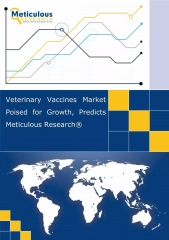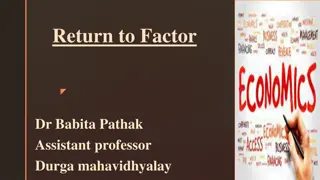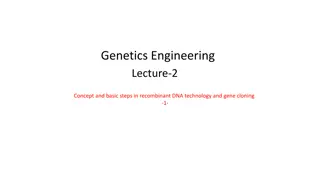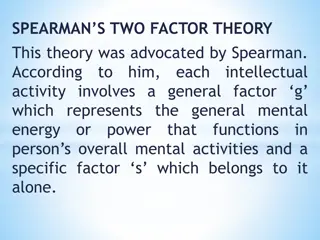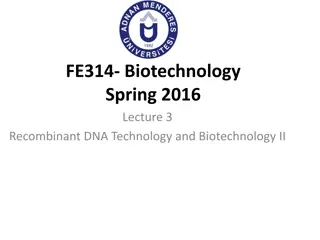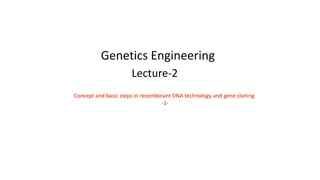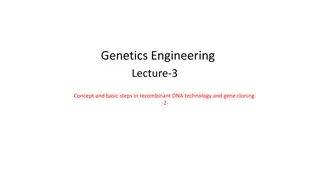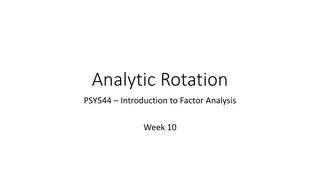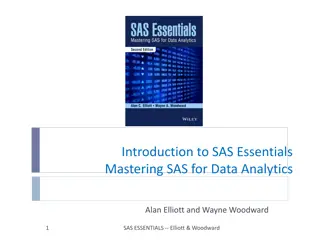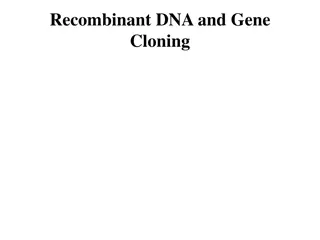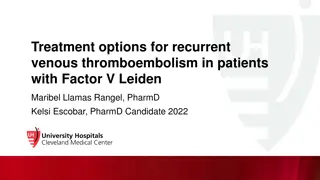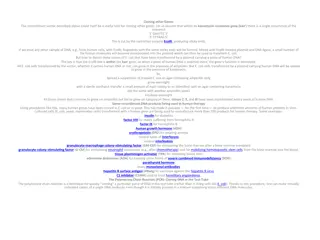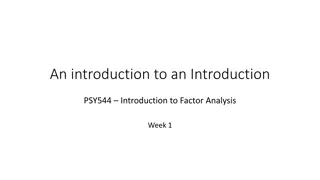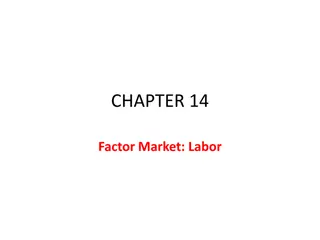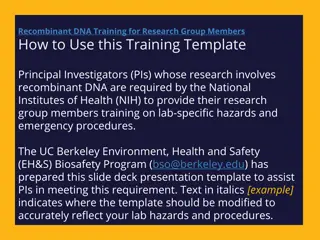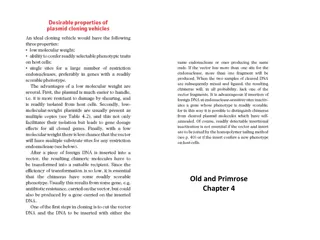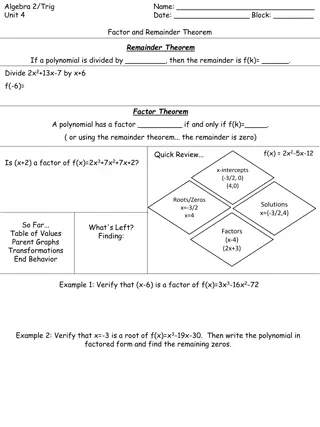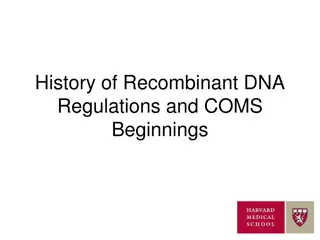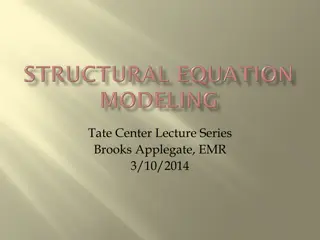Research Antibodies and Reagents Market
Recombinant Coagulation Factors Market by Type (Factor VIII, Factor IX), Source (CHO, HEK), Application (Hemophilia (Type A, Type B), Others), End User (Hospitals, Clinical Research Laboratories) - Global Forecast to 2030
2 views • 3 slides
Veterinary Vaccines Market Poised for Growth, Predicts Meticulous Research®
Veterinary vaccines are integral to the veterinary healthcare industry as they help prevent diseases and their spread. They also reduce the risk of transmission of infections from household pets to their owners. Several types of vaccines, such as live attenuated, inactive, recombinant, and other vac
0 views • 3 slides
Comprehensive Overview of ABE Lab Manual and Foundations of Biotech Package
The ABE Lab Manual, authored by Doreen Osgood, MS, PhD, is a comprehensive resource for biotechnology education, including sequences like Genetic Engineering and Colony PCR. The manual includes teacher and student guides, along with related resources like PowerPoint presentations and lists of labora
1 views • 5 slides
Theories of Intelligence: Monarchie vs. Spearman's Two-Factor Theory
The Monarchie Theory of Intelligence posits a single factor of intelligence, while Spearman's Two-Factor Theory divides intelligence into a general ability (G-factor) and specific abilities (S-factors). The implications of these theories on educational practices are discussed, shedding light on the
11 views • 25 slides
Understanding Blood Clotting Factors in the Human Body
Blood clotting factors play a crucial role in the coagulation process to prevent excessive bleeding. Factors such as Fibrinogen (Factor-I), Prothrombin (Factor-II), Thromboplastin (Factor-III), Calcium Ions (Factor-IV), Labile Factor (Factor-V), and Stable Factor (Factor-VII) are essential for the c
7 views • 14 slides
Recombinant Coagulation Factors
Explore $24.21 billion Recombinant Coagulation Factors Market: Get exclusive insights on key market trends, segments, geographical analysis, & competitive analysis!\n
2 views • 4 slides
The Fitz Factor: Your Ultimate Fitness Guide
Discover the power of personalized fitness with The Fitz Factor, where expert advice meets real-life results. Our brand is dedicated to providing you with top-notch fitness tips, innovative workout strategies, and comprehensive wellness guidance. Whether you're looking to kickstart your fitness jour
2 views • 4 slides
The Fitz Factor: Your Ultimate Fitness Guide
Discover the power of personalized fitness with The Fitz Factor, where expert advice meets real-life results. Our brand is dedicated to providing you with top-notch fitness tips, innovative workout strategies, and comprehensive wellness guidance. Whether you're looking to kickstart your fitness jour
0 views • 4 slides
The Fitz Factor: Your Ultimate Fitness Guide
Discover the power of personalized fitness with The Fitz Factor, where expert advice meets real-life results. Our brand is dedicated to providing you with top-notch fitness tips, innovative workout strategies, and comprehensive wellness guidance. Whether you're looking to kickstart your fitness jour
0 views • 4 slides
The Fitz Factor: Your Ultimate Fitness Guide
Discover the power of personalized fitness with The Fitz Factor, where expert advice meets real-life results. Our brand is dedicated to providing you with top-notch fitness tips, innovative workout strategies, and comprehensive wellness guidance. Whether you're looking to kickstart your fitness jour
0 views • 4 slides
The Fitz Factor: Your Ultimate Fitness Guide
Discover the power of personalized fitness with The Fitz Factor, where expert advice meets real-life results. Our brand is dedicated to providing you with top-notch fitness tips, innovative workout strategies, and comprehensive wellness guidance. Whether you're looking to kickstart your fitness jour
0 views • 4 slides
Understanding the Concept of Return to Factor in Production Economics
Return to Factor is a key concept in production economics that explains the relationship between variable inputs like labor and total production output. The concept is based on the three stages of production - increasing returns, diminishing returns, and negative returns. By analyzing the behavior o
0 views • 7 slides
Guide to Setting Up EU Login and Two-Factor Authentication
Learn how to create your EU Login account and add two-factor authentication for accessing Europass and other EU services. Follow step-by-step instructions to register, verify your email, and set up a secure password. Ensure a seamless process by understanding the difference between Europass and EU L
3 views • 18 slides
Understanding Recombinant DNA Technology and Cloning Vectors in Genetics Engineering
Exploring the fundamentals of recombinant DNA technology and gene cloning, this content delves into the key concepts and basic steps involved. It covers various cloning vectors such as plasmids, bacteriophages, and artificial chromosomes, highlighting their common features and applications in geneti
0 views • 12 slides
Understanding Factorial Designs in Experiments
Factorial designs in experiments allow researchers to study the effects of multiple independent variables simultaneously. This type of design enables the examination of main effects and interactions between factors, providing a comprehensive understanding of the research variables. Main effects refe
1 views • 25 slides
Understanding Spearman's Two-Factor Theory
Spearman's Two-Factor Theory posits a general mental energy factor (g) and specific abilities factors (s), determining individual intelligence. The g factor is innate and crucial in various activities, while the s factor is acquired and varies per task. Despite criticisms regarding the oversimplific
0 views • 9 slides
Understanding Haemophilia: Current Knowledge, Future Perspectives, and the Kenyan Scenario
Haemophilia is a genetic disorder affecting 1 in 10,000 deliveries, with joint bleeds being a common presentation. Bleeding episodes into joints can lead to chronic issues like synovial hypertrophy. Laboratory evaluation involves APTT testing and factor assays, with treatment including factor replac
0 views • 19 slides
Applications of Recombinant DNA Technology in Biotechnology
Explore the various applications of recombinant DNA technology in biotechnology, including insulin production for diabetes, enzyme production in food biotechnology, and the development of Golden Rice. Understand the process of insulin production using recombinant DNA technology and the significance
0 views • 32 slides
Understanding Cloning Vectors and Recombinant DNA Technology
Genetics Engineering Lecture-2 delves into the concept and basic steps of recombinant DNA technology and gene cloning, highlighting different types of cloning vectors like plasmids, bacteriophages, bacterial artificial chromosomes, yeast artificial chromosomes, and mammalian artificial chromosomes.
1 views • 13 slides
Insights into Theories and Definitions of Intelligence
Various psychologists throughout history have defined intelligence in different ways, highlighting aspects such as judgment, reasoning, adaptation, problem-solving, and overall mental capacity. From Binet to Gardner, each perspective sheds light on the diverse facets of intelligence, emphasizing the
3 views • 52 slides
Understanding Recombinant DNA Technology and Gene Cloning
Recombinant DNA technology is crucial for developing new vaccines and pharmaceuticals by combining genetic material from various sources to create unique sequences. Techniques like transformation, non-bacterial transformation, and phage introduction are used to make recombinant DNA. Tools like enzym
3 views • 15 slides
Treatment Strategies for Hemorrhagic Stroke: Goals and Management
Short-term goals for treating hemorrhagic stroke involve rapid neurointensive care to maintain adequate oxygenation, breathing, and circulation, along with managing increased intracranial pressure and blood pressure. Long-term management focuses on preventing complications, recurrent bleeding, delay
11 views • 9 slides
Setting Up Two-Factor Authentication for HRMS Access
Learn how to enhance HR system security by setting up two-factor authentication for off-campus access. This tutorial covers the importance of two-factor authentication, using your phone as a second layer of security, initial setup procedures through Wyoweb, requesting permission for HR self-service
0 views • 9 slides
Understanding Analytic Rotation in Factor Analysis
Factor analysis involves rotation of the factor loading matrix to enhance interpretability. This process was originally done manually but is now performed analytically with computers. Factors can be orthogonal or oblique, impacting the interpretation of factor loadings. Understanding rotation simpli
0 views • 42 slides
Analyzing Experimental Design with One-Factor and Two-Factor GLMs
Comparing the experimental designs of one-factor (1-way ANOVA) and two-factor GLMs, this content explores biological questions that can be answered through the analysis of multiple factors simultaneously in experiments. It discusses sample sizes, drug treatments, factor levels, and concentration var
1 views • 13 slides
Mastering SAS for Data Analytics - Factor Analysis Essentials
Factor analysis is a dimension reduction technique used to identify latent variables from observed data. Exploratory factor analysis involves steps like computing correlations, extracting factors, rotating factors for interpretation, and computing factor scores. SAS PROC FACTOR is commonly used for
1 views • 34 slides
Factorization Methods and Factor Tables in Mathematics
Explore the techniques of factorization through Tic-Tac-Toe method and factor tables. Learn how to find pairs of numbers that multiply to a given result, factor polynomials correctly, and understand the importance of factoring in mathematics concepts. Engage with visual representations and step-by-s
0 views • 12 slides
Understanding Recombinant DNA and Gene Cloning
Recombinant DNA is artificially created by combining DNA from multiple sources into a single molecule. This process involves treating DNA with restriction endonucleases, such as BamHI, which cut at specific sites, resulting in sticky ends that can base pair with complementary DNA molecules. DNA liga
0 views • 33 slides
Treatment Strategies for Recurrent Venous Thromboembolism in Factor V Leiden Patients
This presentation discusses the treatment options for recurrent venous thromboembolism in patients with Factor V Leiden mutation. It explores the pathophysiology, epidemiology, and diagnosis criteria for Factor V Leiden, reviews failed anticoagulation history, and suggests outpatient anticoagulation
0 views • 31 slides
Cloning Other Genes and Recombinant DNA Technology
The recombinant vector with a kanamycin resistance gene can be used to clone other genes by inserting human DNA fragments and selecting transformed E. coli cells. This technique has enabled the production of various human proteins for therapeutic purposes, such as insulin, growth hormones, and clot-
0 views • 6 slides
An Introduction to Factor Analysis: Course Logistics for PSY544
This course in PSY544 introduces students to factor analysis with a focus on understanding the statistical theory behind the model. Taught in English, the course covers lecture times, prerequisites, math requirements, and grading criteria. Emphasizing the inner workings of factor analysis, it aims t
0 views • 16 slides
Understanding Competitive Factor Market in Labor Economics
A competitive factor market involves a large number of sellers and buyers of a factor of production, like labor. With no single entity influencing prices, each acts as a price taker. The demand for factors depends on firms' output levels and input costs, leading to derived demands. Profitability of
0 views • 43 slides
Recombinant DNA Training Overview for Research Group Members
This training template is designed to assist Principal Investigators in providing lab-specific biosafety training to research group members working with recombinant DNA. It covers essential topics such as NIH guidelines, administrative requirements, risk assessment, emergency procedures, and more. C
0 views • 22 slides
Understanding Recombinant DNA Technology and Plasmid Vectors
Explore the world of recombinant DNA technology through the utilization of plasmids as vectors for gene cloning. Learn about techniques like insertional inactivation and the characteristics of common plasmid vectors such as pBR322. Discover the intricacies of genetic manipulation in bacterial origin
0 views • 26 slides
Understanding Recombinant Plasmids in Bacterial Transformation
Recombinant plasmids play a crucial role in transforming bacteria for producing proteins like insulin. The process involves steps such as uptake through methods like heat shock or electroporation, culturing with antibiotics, and selection of transformed cells. By introducing human genes into bacteri
0 views • 15 slides
Understanding Mechanical Quality Factor of Cryogenic Silicon
This presentation explores the Mechanical Quality Factor of Cryogenic Silicon, detailing its significance in improving LIGO detectors by minimizing thermal elastic noise. The Fluctuation-Dissipation Theorem is discussed, showing how it relates noise spectrum to linear system responses. Methods for m
0 views • 18 slides
Understanding Polynomial Factor and Remainder Theorems
Exploring the Factor and Remainder Theorems in algebra, including examples on verifying factors, finding roots, applying the Rational Root Test, and determining zeros of polynomials. Learn how to factor polynomials, find remaining zeros, and analyze coefficients to uncover the complete factorization
0 views • 6 slides
Understanding Two-Factor Authentication for Enhanced Security
Two-factor authentication adds an extra layer of security by requiring two verification steps to access an account. This process helps prevent unauthorized access even if passwords are compromised. Explore different types of two-factor authentication methods such as text message, fingerprint scanner
0 views • 8 slides
Understanding COMS and Recombinant DNA Regulations
The Committee on Microbiological Safety (COMS) was established in 1978 to address public concerns regarding safety, environment, and ethics of research involving hazardous biological agents. COMS oversees activities related to recombinant DNA and biological agents at Harvard, supporting all schools
0 views • 6 slides
Understanding Latent Variable Modeling in Statistical Analysis
Latent Variable Modeling, including Factor Analysis and Path Analysis, plays a crucial role in statistical analysis to uncover hidden relationships and causal effects among observed variables. This method involves exploring covariances, partitioning variances, and estimating causal versus non-causal
0 views • 59 slides

